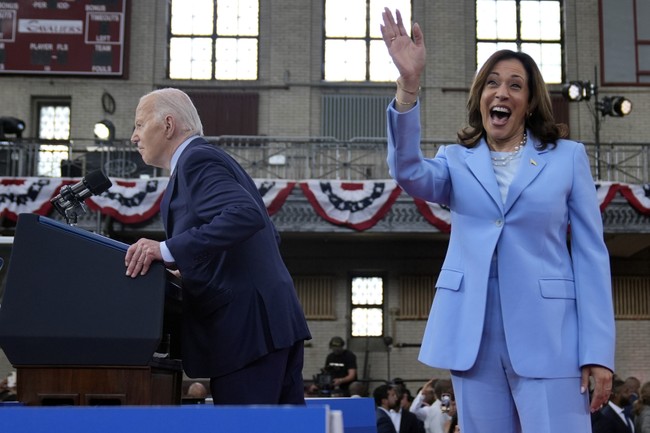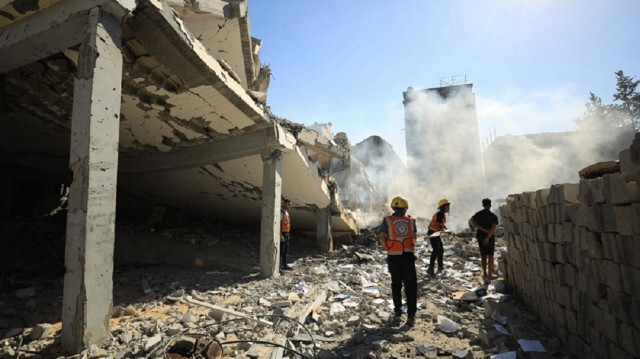Palestinian Factions Unite in Historic Beijing Agreement
In a significant step towards unity, Palestinian factions have agreed on a national reconciliation plan under the auspices of China, promising coordinated efforts against external aggression and humanitarian reconstruction.
Published July 24, 2024 - 00:07am
Image recovered from shorouknews.com
In a historic move, various Palestinian factions have come together in Beijing to sign a reconciliation agreement, signaling a new phase of unity and collaboration aimed at addressing the longstanding conflict with Israel. The agreement, known as the 'Beijing Declaration,' was signed in the Chinese capital and marks a pivotal moment in the Palestinian struggle for independence and sovereignty.
Mousa Abu Marzouk, head of international relations for Hamas, emphasized the historic significance of the moment. He pointed out that the recent conflict, referred to as the 'Al-Aqsa Flood,' has changed the landscape both nationally and internationally, underscoring the resolve of the Palestinian people to claim their rights and resist external pressures. Abu Marzouk expressed hope that the terms of the Beijing Declaration would be successfully implemented, unlike previous agreements that failed to come to fruition.
The Beijing Declaration was brokered by Chinese Foreign Minister Wang Yi, who announced that 14 Palestinian factions had agreed to form a temporary national reconciliation government to manage Gaza in the post-war period. This move aims to end the internal divisions that have plagued Palestinian politics and to set the stage for a unified front in the international arena.
Representatives from various factions, including Hamas, Fatah, Islamic Jihad, and the Popular and Democratic Fronts for the Liberation of Palestine, participated in the talks. The agreement stipulates the formation of a temporary national unity government, which will have the mandate to manage Gaza, coordinate humanitarian aid, and prepare for general elections. This government will work under the legal framework established by the Palestinian Basic Law and will oversee the unification of all Palestinian institutions.
The declaration emphasizes the need for international support to enforce humanitarian aid delivery and to relieve the siege on the West Bank and Gaza Strip. It calls for the delivery of medical and humanitarian assistance without any preconditions, highlighting the dire need for support in the wake of ongoing conflicts and blockades.
Moreover, the factions have vowed to uphold the decisions of the United Nations General Assembly and Security Council, affirming the right of Palestinians to resist occupation and to establish an independent state with Jerusalem as its capital. They have also welcomed the opinion of the International Court of Justice, which declared Israeli occupation and settlements illegal, calling for their immediate dismantlement.
Chinese Foreign Minister Wang Yi noted that the unity and reconciliation of Palestinian factions are internal matters, yet emphasized that lasting peace and effective governance would require broad international support. He urged other nations to back the newly agreed-upon governance structure to ensure it could effectively manage both Gaza and the West Bank.
The agreement has, however, drawn ire from Israeli officials. Israeli Foreign Minister Yisrael Katz criticized Palestinian President Mahmoud Abbas for signing the agreement with Hamas, whom he labeled as terrorists. Katz declared that Israel would not allow Hamas to solidify its control over Gaza and pledged ongoing efforts to dismantle Hamas' influence.
In response, senior Hamas official Sami Abu Zuhri dismissed Netanyahu's statements as mere stalling tactics intended to placate the anger of Israeli citizens with relatives held captive in Gaza. Abu Zuhri maintained that Hamas remains firmly committed to its goals and would not be swayed by Israeli pressure.
Support for the Palestinian cause was also reinforced by a recent ruling from the International Court of Justice declaring the Israeli occupation illegal and demanding its end. The agreement has gained commendation from several international actors, including the Arab League, Russia, and numerous solidarity movements worldwide.
The humanitarian crisis remains a critical issue, with the World Health Organization highlighting significant public health risks, including the potential spread of polio due to deteriorating sanitation conditions in Gaza. The WHO has recommended the urgent evacuation of thousands of residents needing medical care, demonstrating the critical health crisis compounding the political conflict.
As factions move towards implementing the Beijing Declaration, the focus will shift to practical steps such as institution building, reconstruction, and preparing for eventual elections. While the path ahead is fraught with challenges, this unified approach presents a valuable opportunity to strengthen Palestinian governance structures and to present a cohesive strategy against external threats.






